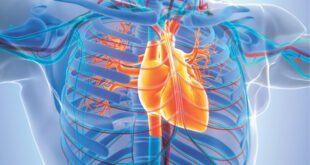By Personal Care Medical Practices, PLLC –
 The list of the biggest health threats for men is surprisingly short — and prevention pays off. Consider this top seven list of men’s health threats, compiled from statistics provided by the Centers for Disease Control and Prevention (CDC) and other leading organizations to reflect men’s health risks in the United States. Then get serious about reducing your risks. The biggest threats to men’s health can often be prevented. Here’s what you need to know to live a longer, healthier life.
The list of the biggest health threats for men is surprisingly short — and prevention pays off. Consider this top seven list of men’s health threats, compiled from statistics provided by the Centers for Disease Control and Prevention (CDC) and other leading organizations to reflect men’s health risks in the United States. Then get serious about reducing your risks. The biggest threats to men’s health can often be prevented. Here’s what you need to know to live a longer, healthier life.
1: Heart disease
Heart disease tops the list as the leading men’s health threat. Take charge of heart health by making healthier lifestyle choices. For example:
- Don’t smoke. If you smoke or use other tobacco products, ask your doctor to help you quit. It’s also important to avoid exposure to secondhand smoke.
- Eat a healthy diet. Choose vegetables, fruits, whole grains, high-fiber foods and lean sources of protein, such as fish. Limit foods high in saturated fat and sodium.
- Manage chronic conditions. If you have high cholesterol or high blood pressure, follow your doctor’s treatment recommendations. If you have diabetes, keep your blood sugar under control.
- Include physical activity in your daily routine. Choose sports or other activities you enjoy, from basketball to brisk walking.
- Maintain a healthy weight. Extra pounds increase the risk of heart disease.
- Limit alcohol. If you choose to drink alcohol, do so only in moderation. Too much alcohol can raise your blood pressure.
- Manage stress. If you feel constantly on edge or under assault, your lifestyle habits may suffer. Take steps to reduce stress — or learn to deal with stress in healthy ways.
2: Cancer
Various types of cancer are of particular concern to men, including lung cancer, skin cancer, prostate cancer and colorectal cancer. To reduce the risk of cancer, consider these general tips:
- Take early detection seriously. Consult your doctor for regular cancer screenings.
- Don’t smoke. Using any type of tobacco puts you on a collision course with cancer. Avoiding exposure to secondhand smoke counts, too.
- Maintain a healthy weight. Losing excess pounds — and keeping them off — may lower the risk of various types of cancer.
- Get moving. In addition to helping you control your weight, physical activity on its own may lower the risk of certain types of cancer.
- Eat plenty of fruits and vegetables. Although making healthy selections at the grocery store and at mealtime can’t guarantee cancer prevention, it may help reduce your risk.
- Protect yourself from the sun. When you’re outdoors, cover up and use plenty of sunscreen.
- Limit alcohol. If you choose to drink alcohol, do so only in moderation. The risk of various types of cancer — including cancer of the colon, lung, kidney and liver — increases with the amount of alcohol you drink and the length of time you’ve been drinking regularly.
No. 3: Accidents
Motor vehicle crashes are a leading cause of fatal accidents among men. To stay safe on the road, use common sense. Wear your seat belt. Follow the speed limit. Don’t drive under the influence of alcohol or any other substances, and don’t drive while sleepy.
4: Chronic lower respiratory diseases
Chronic lung conditions — which include bronchitis and emphysema — also are a concern for men. To protect your respiratory health:
- Don’t smoke. If you smoke, ask your doctor to help you quit. Also avoid exposure to secondhand smoke.
- Steer clear of pollutants. Minimize exposure to chemicals and outdoor air pollution.
- Prevent respiratory infections. Wash your hands often and get a yearly flu vaccine. Ask your doctor whether you need a pneumonia vaccine as well.
5: Stroke
You can’t control some stroke risk factors — such as family history, age and race — but you can control other contributing factors. For example:
- Manage chronic conditions. If you have high cholesterol or high blood pressure, follow your doctor’s treatment recommendations. If you have diabetes, keep your blood sugar under control.
- Don’t smoke. If you smoke or use other tobacco products, ask your doctor to help you quit.
- Make healthy lifestyle choices. Eat a healthy diet, being especially careful to limit foods high in saturated fat and cholesterol. Include physical activity in your daily routine. If you’re overweight, lose excess pounds.
- Limit alcohol. If you choose to drink alcohol, do so only in moderation.
6: Type 2 diabetes
Type 2 diabetes — the most common type of diabetes — affects the way your body uses blood sugar (glucose). Poorly controlled diabetes can lead to heart disease, eye problems, nerve damage and other complications. To prevent type 2 diabetes, get serious about your lifestyle choices. Eat a healthy diet. Include physical activity in your daily routine. If you’re overweight, lose excess pounds.
7: Suicide
Suicide is another leading men’s health risk. An important risk factor for suicide among men is depression. If you have signs and symptoms of depression — such as feelings of sadness or unhappiness and loss of interest in normal activities — consult your doctor. Treatment is available. If you’re contemplating suicide, call for emergency medical help or go the nearest emergency room.
*list compiled by the Mayo Clinic
The bottom line: understanding health risks is one thing, taking action to reduce your risks is another. Start with healthy lifestyle choices — eating a healthy diet, staying physically active, quitting smoking, getting regular checkups and taking precautions in your daily activities. The impact may be greater than you’ll ever know.
If you are looking for affordable, high quality medical care you will be happy to know that it is available! The medical team at Personal Care practices preventative medicine, providing extensive annual physicals and tracking the results. Routine exams include checking the whole body: ears-nose-throat, eyes, veins for any future signs of stroke. Among the services available at Personal Care are EKG, lab work, woman’s wellness including a pap smear, or men’s wellness including prostate check, heart, blood pressure/hypertension, weight loss management, diabetic management, temperature, lungs, skin cancer check, injections including allergy and B12, vaccinations including flu, MMR, just to name a few. One visit with the medical team at Personal Care and you see we really do care about the patient’s well being and preventing future problems.
We look for and monitor you for any upcoming problems to prevent them before they become a major health issue for you.
352-307-5660
www.PersonalCareMedicalPractices.org
 Central Florida Health and Wellness Magazine Health and Wellness Articles of the Villages
Central Florida Health and Wellness Magazine Health and Wellness Articles of the Villages


